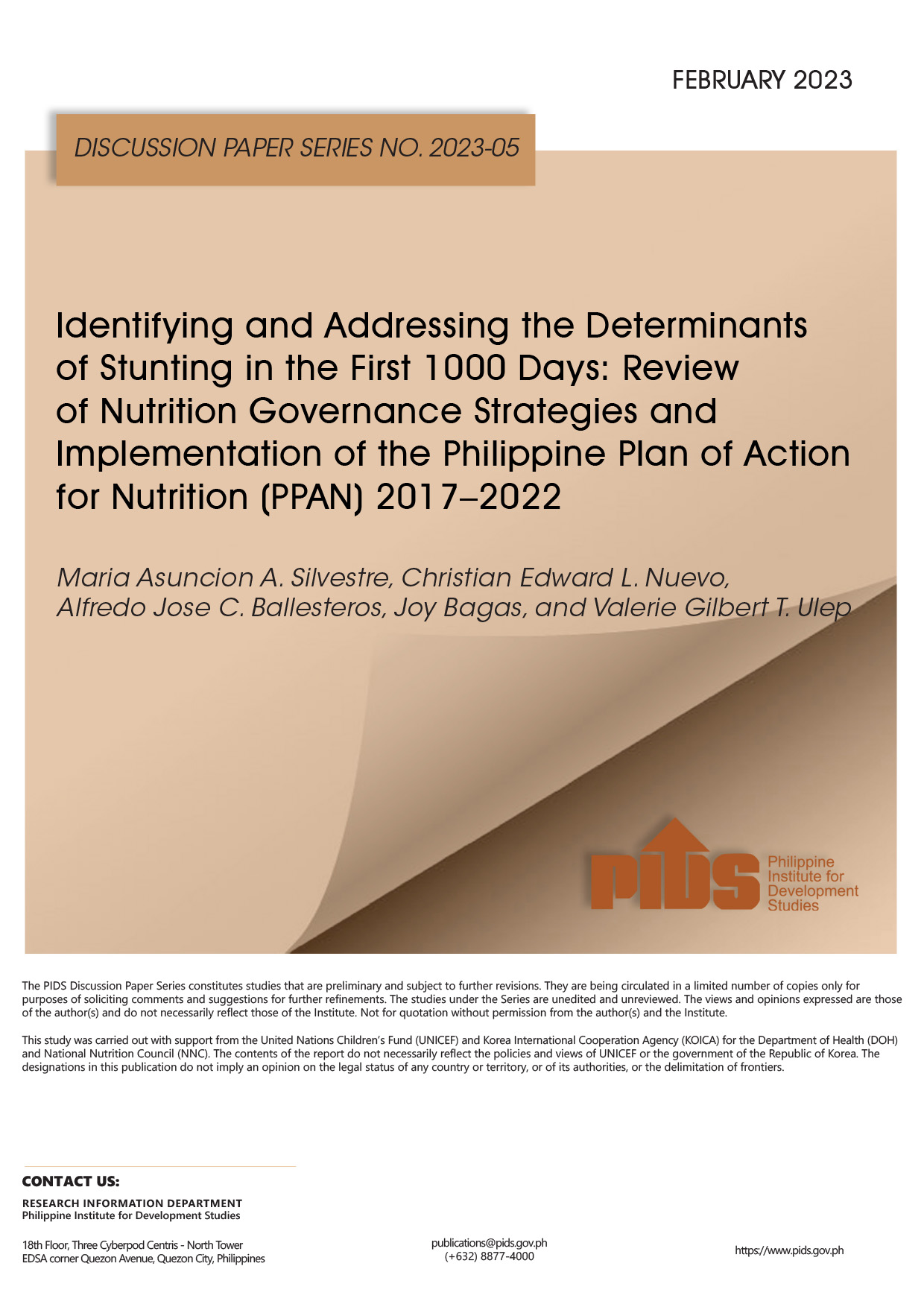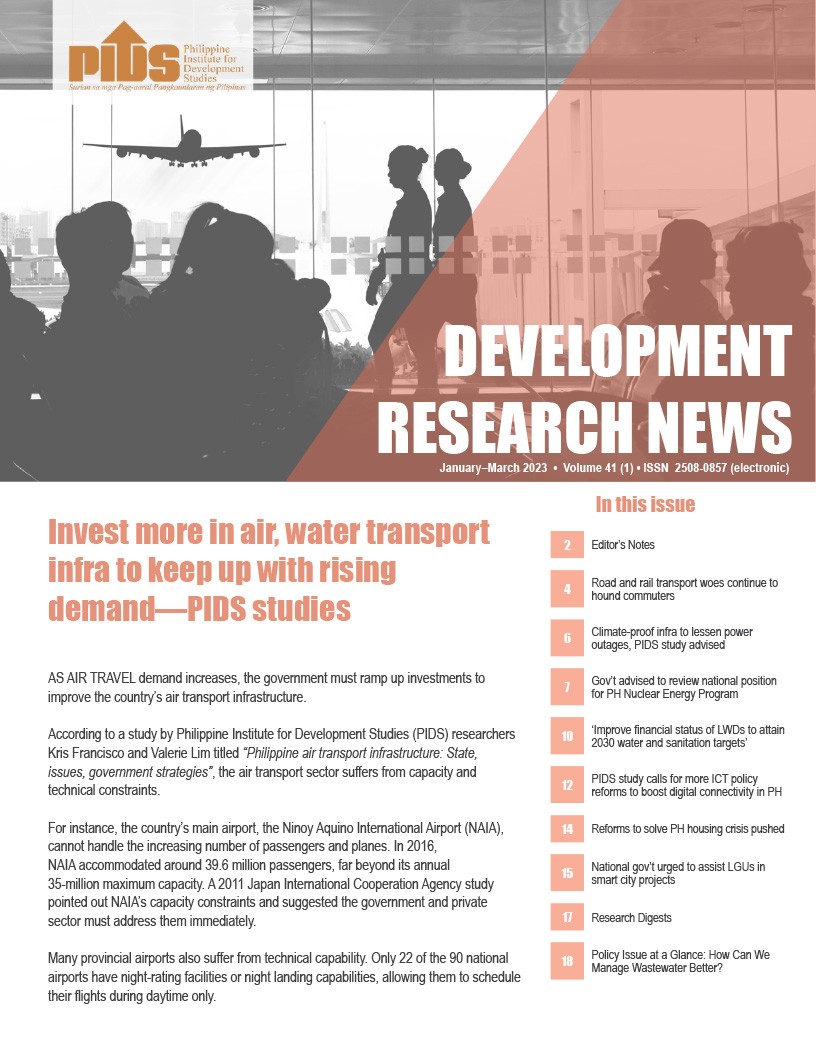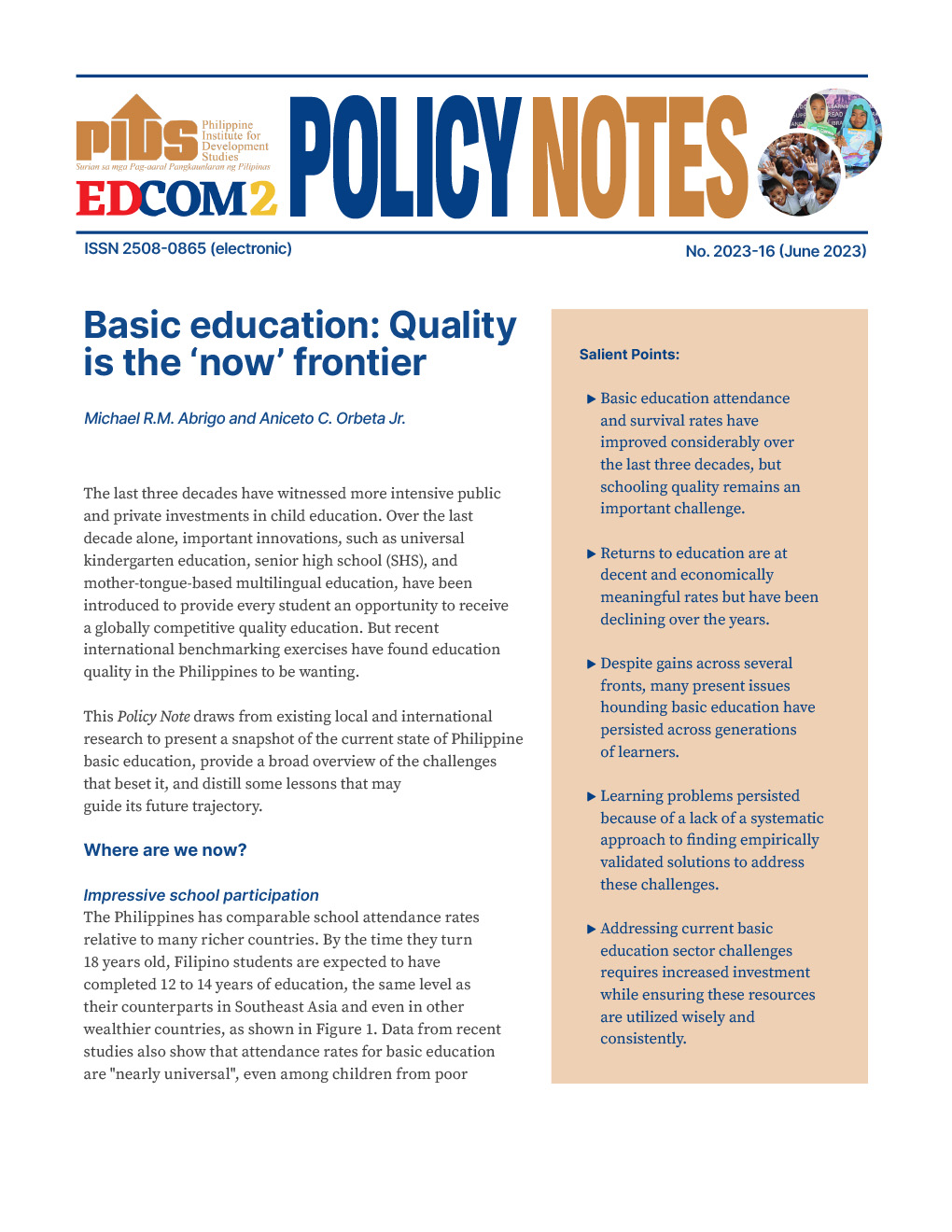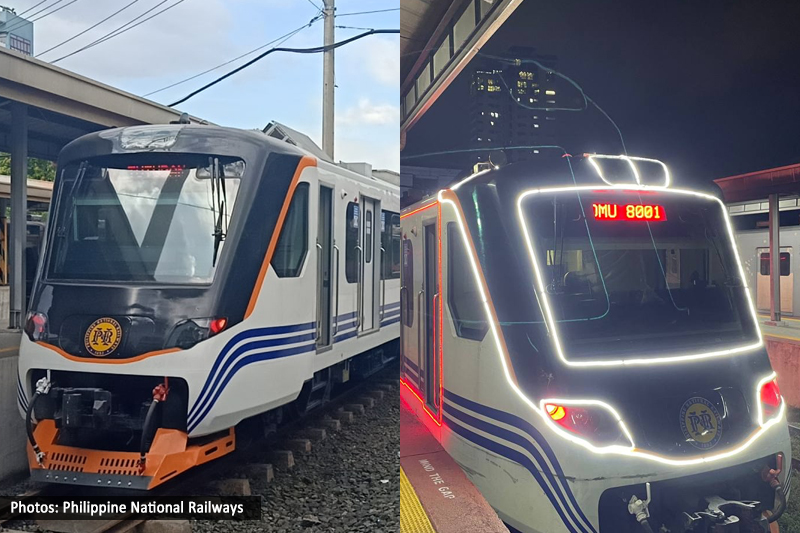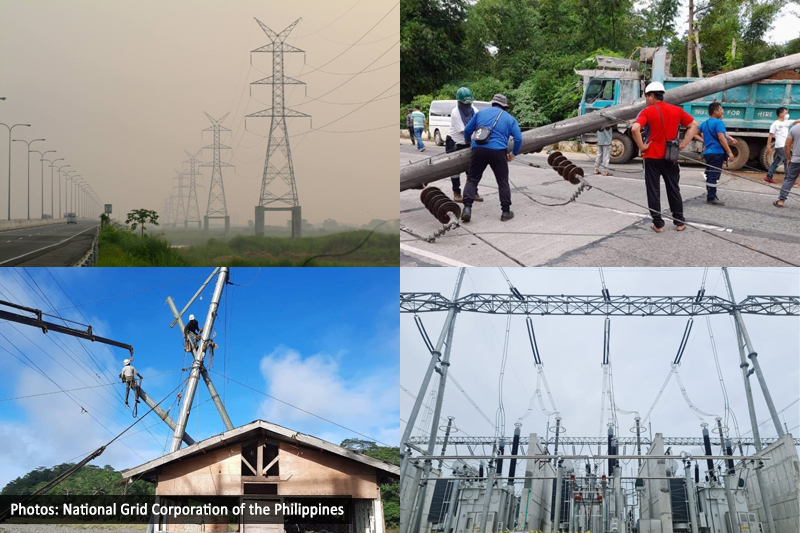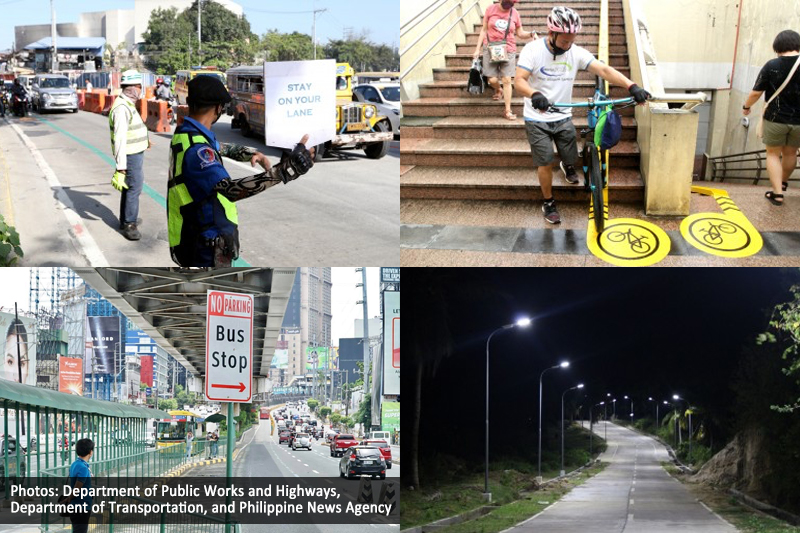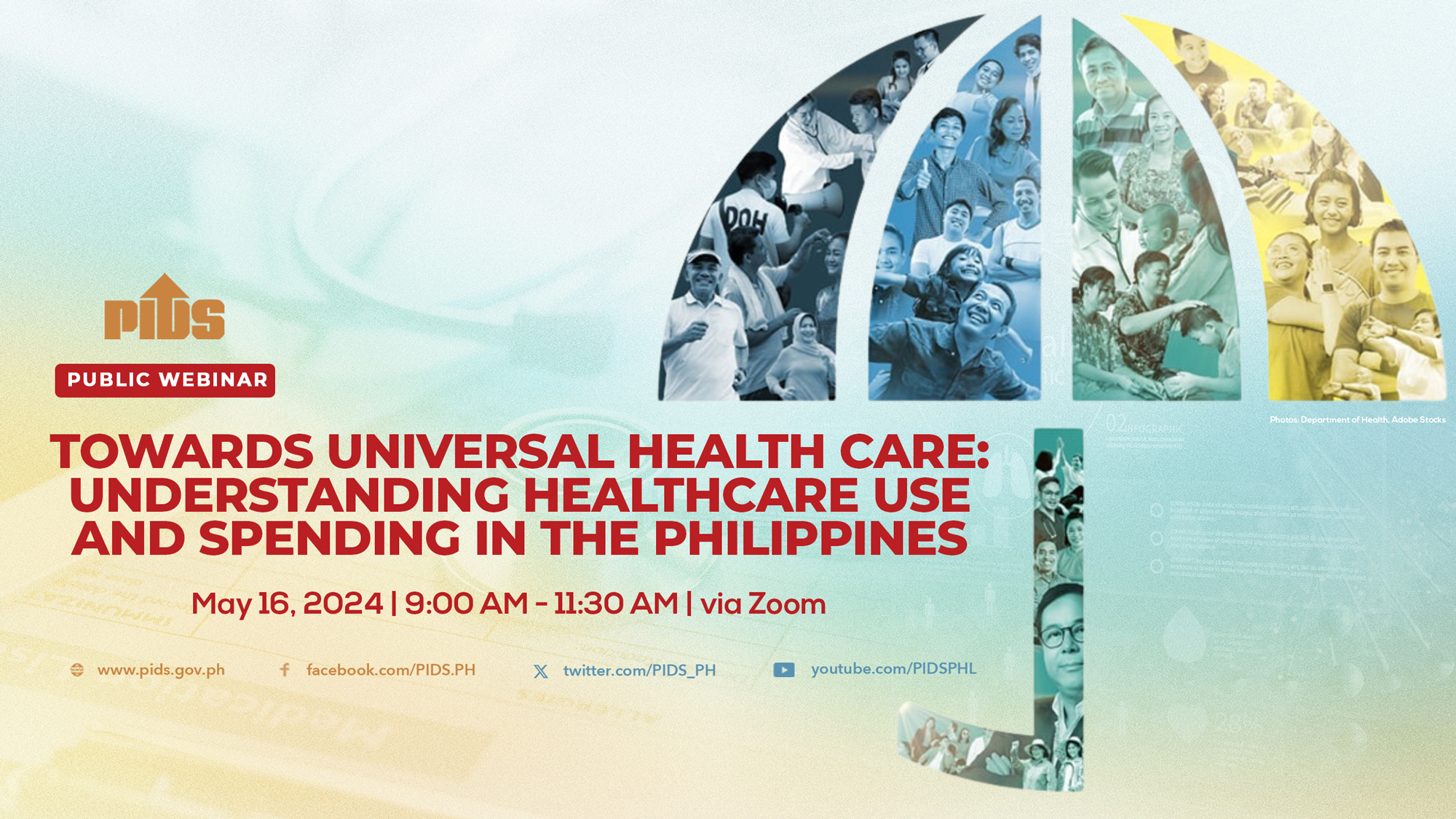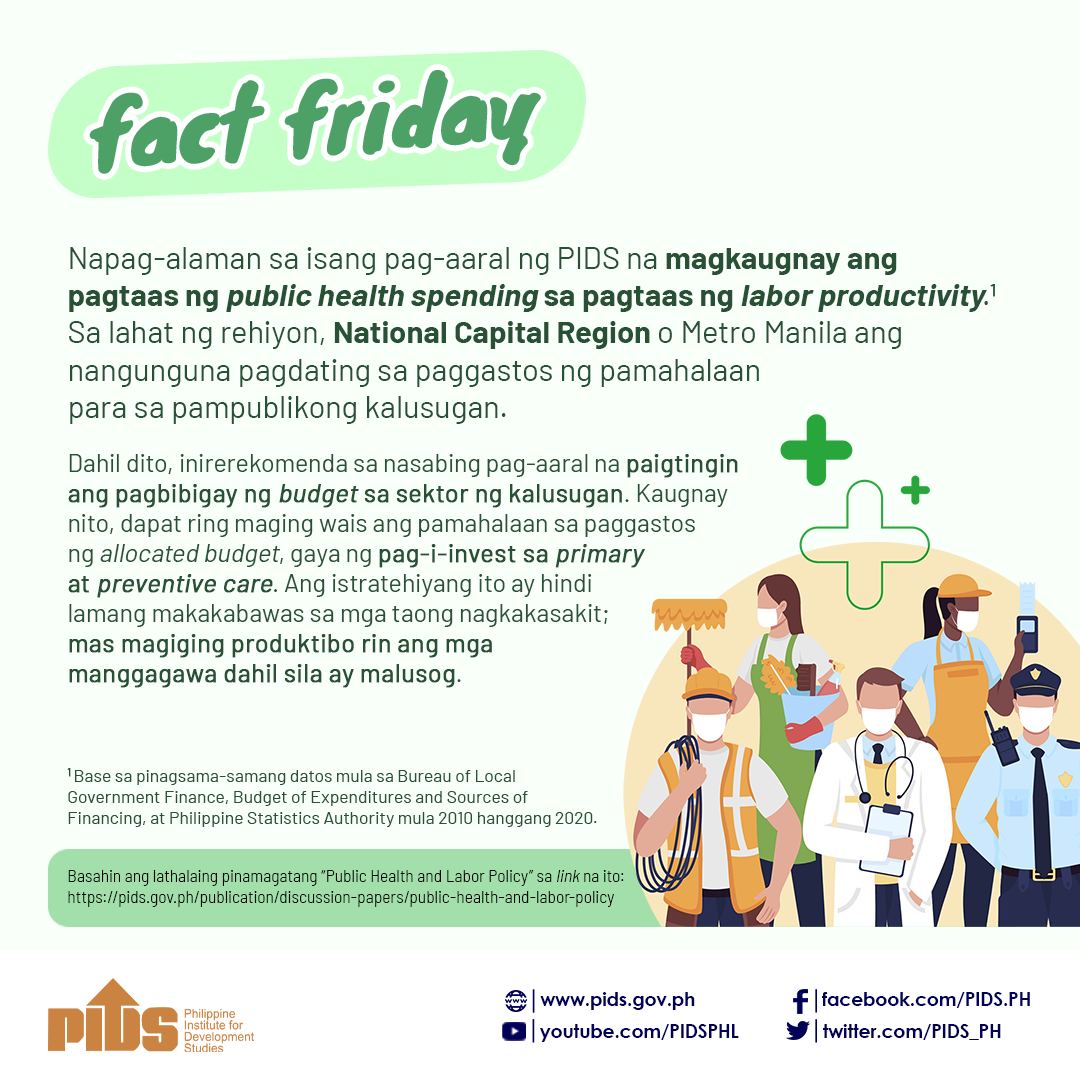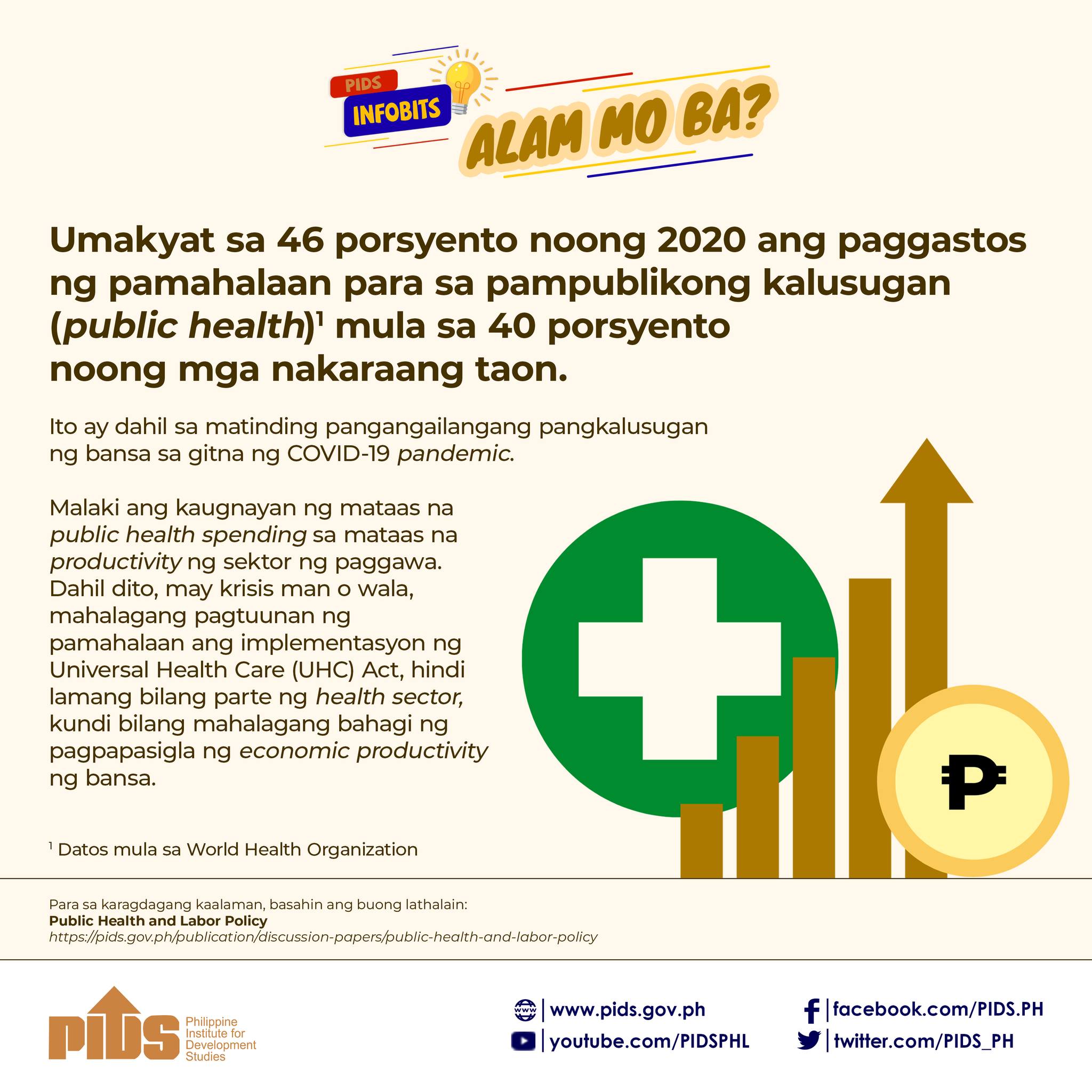Lawmakers on Tuesday filed a bill proposing a three-year, P1.5-trillion stimulus program anchored on infrastructure spending, especially in the countryside, to generate more jobs following the work stoppage as a result of quarantine measures against COVID-19 which were imposed in March.
House Bill (HB) 6709 seeks to dramatically raise state spending on health, education, agriculture, local roads, and livelihood to blunt what the International Monetary Fund expects to be the worst global recession since the Great Depression in the 1930s.
HB 6709 or the COVID-19 Unemployment Reduction Economic Stimulus (CURES) Act of 2020 would appropriate and automatically release money from a CURES Fund equivalent to P1.5 trillion over a three-year period to bankroll infrastructure projects in the priority areas of health, education, agriculture, local roads and livelihood.
Chosen projects should be ready for construction within 90 days after the Department of Budget and Management (DBM) certifies an actual fund release.
Camarines Sur Rep. Luis Raymund Villafuerte, one of the co-authors of the bill, said the new law would provide a significant stimulus for an accelerated economic recovery alongside President Duterte's flagship Build, Build, Build program, which will be further complemented by a Plant, Plant, Plant program for long-term food self-sufficiency.
In infrastructure projects under HP 6709 will be undertaken in conjuiction with the Balik Probinsya, Bagong Pag-Asa program that seeks to encourage people in Metro Manila to return to their home provinces by spreading development to these areas.
The CURES Fund will be available to a wide gamut of projects ranging from barangay health centers and municipal and city hospitals to digital equipment for testing, “tele-health” services, and e-prescriptions to post-harvest facilities, bagsakan centers, and food terminals.
The funds would also be available to infrastructure projects such as walking or bicycle lanes, bridges across creeks and irrigation canals, evacuation centers and roads going to tourist spots.
Funding would be available, too, for projects like farm-to-market roads, roads connecting communities to schools and health facilities; along with the Enhanced Sustainable Livelihood Program of the Department of Social Welfare and Development (DSWD), the Enhanced Tupad Program and Barangay Emergency Employment Program of the Department of Labor and Employment (DOLE), and access of micro, small and medium-scale enterprises (MSMEs) to credit and financing.
“In the face of a global recession and unemployment among the workforce, it is incumbent upon the government to establish both palliative and curative interventions that would simultaneously support the Filipino worker in the immediate term while laying out the foundations for a more resilient and sustainable future,” the authors of HB 6709 said in their bill.
Given that infrastructure is the backbone of any economy, they said that “although palliative measures such as cash transfers, unemployment dole-outs, relief and other forms of immediate support are undoubtedly necessary at the moment, it is in the interest of both the government, the private sector, and the Filipino people at large that a lasting cure for economic resilience be established.”
As proposed in HB 6709, an initial P500 billion of this CURES Fund will be released on the first year of this 2020-2022 economic stimulus and employment program, with P500 billion more for release on the second year, and the remaining P500 billion on the third and final year.
After the third year of the program’s implementation, the bill mandates the Congress to enact legislation either extending CURES or terminating its fund. In case the program is terminated and there are un-obligated funds left, the balance will be made available for the general budgetary requirements of the succeeding year after the project’s termination.
As a result of the COVID-19 pandemic and drastic quarantine measures to contain it, gross domestic product (GDP) growth is expected to slow to zero, or even decline.
Employment will suffer a big hit, lawmakers said, as the state-run Philippine Institute for Development Studies (PIDS) now foresees industry losses at a low of P276.3 billion to a high of P2.5 trillion over the next few months, and the Philippine Construction Association alone expects about 1.3 million workers to lose their jobs.
In addition to the projected displacement of at least 1.3 million local workers, the bill’s authors said the Department of Foreign Affairs (DFA) has reported the repatriation of 19,466 overseas Filipino workers (OFWs) as of April 25, with thousands more likely to come home soon as a result of the pandemic’s global economic fallout.
The bill's authors are House Speaker Alan Peter Cayetano; Villafuerte; Majority Leader Ferdinand Martin Romualdez; Deputy Speakers Paolo Duterte and Loren Legarda; and Reps. Eric Yap, Maria Laarni Cayetano, Michael Defensor and Jose Antonio Sy-Alvarado.
On Tuesday, Labor Secretary Silvestre Bello III estimated that the COVID-19 pandemic has displaced some 2.5 million workers temporarily or permanently.
The number could rise further if businesses fail to implement flexible arrangements to save jobs, Bello said.
Also on Tuesday, the President tapped the Department of Social Welfare and Development (DSWD) as the sole agency to lead in the distribution of emergency subsidies to poor families under the Social Amelioration Program (SAP).
Duterte gave the latest directive to DSWD Secretary Rolando Bautista, as he acknowledged the mounting complaints about irregularities in the release of payout for intended beneficiaries of SAP.
In a taped public address aired on state-run PTV-4 on Tuesday, Duterte lamented that his “nightmare” about the unlawful distribution of cash aid to low-income households had become a reality.
On April 1, Duterte tasked DSWD, as well as Presidential Peace Adviser Carlito Galvez Jr., the chief implementer of government’s national policy against coronavirus disease 2019 (Covid-19), to lead the relief efforts to poor families affected by the health crisis in the country.
The role of local government units (LGUs) was supposed to be limited to assisting the DSWD in relief distribution after being stripped of their role to distribute the cash subsidies to SAP beneficiaries.
The DSWD, however, admitted that it has limited capacity to fully implement SAP, prompting the agency to seek LGUs’ help to ensure the speedy distribution of the emergency subsidies.
To address complaints on the SAP implementation, Duterte said he had directed Bautista to ask for the military’s assistance in distributing the emergency subsidies.
Under the SAP, the emergency subsidies worth between P5,000 to P8,000 must be granted to poor families to help them cope with the crisis brought about by the COVID-19 pandemic.
LGUs are mandated to distribute the money downloaded to them by DSWD for the implementation of SAP.
Around 12.282 million SAP recipients who are not part of the Pantawid Pamilyang Pilipino Program (4Ps) have already received the cash aid from the national government, according to the data uploaded on DSWD's official website.
LGUs have so far distributed P74.404 billion out of P81.159 billion downloaded to them by DSWD for non-4Ps beneficiaries who must receive the emergency subsidies.
LGUs were initially instructed to complete the release of the payout on April 30.
However, the deadline for the distribution of the first tranche of emergency subsidies was once again extended until May 13 due to LGUs’ failure to comply with the original deadline.
On Monday, Rep. Wilfrido Mark Enverga said the House is committed to help the government in providing financial assistance to Filipinos, especially to farmers and low-income households affected by the COVID-19 pandemic and the lockdown that has closed businesses.
In a privilege speech on Monday's virtual session, Enverga, chairman of the committee on agriculture and food, urged the government to ensure that help is extended to the agricultural sector amid the pandemic. He said while the first tranche of the Social Amelioration Program was responsive to the needs of the people, especially the poor,it did not include many aging Filipino farmers and fisherfolk, who are among the most vulnerable persons due to the health and economic risks brought by the pandemic. – With PNA
House Bill (HB) 6709 seeks to dramatically raise state spending on health, education, agriculture, local roads, and livelihood to blunt what the International Monetary Fund expects to be the worst global recession since the Great Depression in the 1930s.
HB 6709 or the COVID-19 Unemployment Reduction Economic Stimulus (CURES) Act of 2020 would appropriate and automatically release money from a CURES Fund equivalent to P1.5 trillion over a three-year period to bankroll infrastructure projects in the priority areas of health, education, agriculture, local roads and livelihood.
Chosen projects should be ready for construction within 90 days after the Department of Budget and Management (DBM) certifies an actual fund release.
Camarines Sur Rep. Luis Raymund Villafuerte, one of the co-authors of the bill, said the new law would provide a significant stimulus for an accelerated economic recovery alongside President Duterte's flagship Build, Build, Build program, which will be further complemented by a Plant, Plant, Plant program for long-term food self-sufficiency.
In infrastructure projects under HP 6709 will be undertaken in conjuiction with the Balik Probinsya, Bagong Pag-Asa program that seeks to encourage people in Metro Manila to return to their home provinces by spreading development to these areas.
The CURES Fund will be available to a wide gamut of projects ranging from barangay health centers and municipal and city hospitals to digital equipment for testing, “tele-health” services, and e-prescriptions to post-harvest facilities, bagsakan centers, and food terminals.
The funds would also be available to infrastructure projects such as walking or bicycle lanes, bridges across creeks and irrigation canals, evacuation centers and roads going to tourist spots.
Funding would be available, too, for projects like farm-to-market roads, roads connecting communities to schools and health facilities; along with the Enhanced Sustainable Livelihood Program of the Department of Social Welfare and Development (DSWD), the Enhanced Tupad Program and Barangay Emergency Employment Program of the Department of Labor and Employment (DOLE), and access of micro, small and medium-scale enterprises (MSMEs) to credit and financing.
“In the face of a global recession and unemployment among the workforce, it is incumbent upon the government to establish both palliative and curative interventions that would simultaneously support the Filipino worker in the immediate term while laying out the foundations for a more resilient and sustainable future,” the authors of HB 6709 said in their bill.
Given that infrastructure is the backbone of any economy, they said that “although palliative measures such as cash transfers, unemployment dole-outs, relief and other forms of immediate support are undoubtedly necessary at the moment, it is in the interest of both the government, the private sector, and the Filipino people at large that a lasting cure for economic resilience be established.”
As proposed in HB 6709, an initial P500 billion of this CURES Fund will be released on the first year of this 2020-2022 economic stimulus and employment program, with P500 billion more for release on the second year, and the remaining P500 billion on the third and final year.
After the third year of the program’s implementation, the bill mandates the Congress to enact legislation either extending CURES or terminating its fund. In case the program is terminated and there are un-obligated funds left, the balance will be made available for the general budgetary requirements of the succeeding year after the project’s termination.
As a result of the COVID-19 pandemic and drastic quarantine measures to contain it, gross domestic product (GDP) growth is expected to slow to zero, or even decline.
Employment will suffer a big hit, lawmakers said, as the state-run Philippine Institute for Development Studies (PIDS) now foresees industry losses at a low of P276.3 billion to a high of P2.5 trillion over the next few months, and the Philippine Construction Association alone expects about 1.3 million workers to lose their jobs.
In addition to the projected displacement of at least 1.3 million local workers, the bill’s authors said the Department of Foreign Affairs (DFA) has reported the repatriation of 19,466 overseas Filipino workers (OFWs) as of April 25, with thousands more likely to come home soon as a result of the pandemic’s global economic fallout.
The bill's authors are House Speaker Alan Peter Cayetano; Villafuerte; Majority Leader Ferdinand Martin Romualdez; Deputy Speakers Paolo Duterte and Loren Legarda; and Reps. Eric Yap, Maria Laarni Cayetano, Michael Defensor and Jose Antonio Sy-Alvarado.
On Tuesday, Labor Secretary Silvestre Bello III estimated that the COVID-19 pandemic has displaced some 2.5 million workers temporarily or permanently.
The number could rise further if businesses fail to implement flexible arrangements to save jobs, Bello said.
Also on Tuesday, the President tapped the Department of Social Welfare and Development (DSWD) as the sole agency to lead in the distribution of emergency subsidies to poor families under the Social Amelioration Program (SAP).
Duterte gave the latest directive to DSWD Secretary Rolando Bautista, as he acknowledged the mounting complaints about irregularities in the release of payout for intended beneficiaries of SAP.
In a taped public address aired on state-run PTV-4 on Tuesday, Duterte lamented that his “nightmare” about the unlawful distribution of cash aid to low-income households had become a reality.
On April 1, Duterte tasked DSWD, as well as Presidential Peace Adviser Carlito Galvez Jr., the chief implementer of government’s national policy against coronavirus disease 2019 (Covid-19), to lead the relief efforts to poor families affected by the health crisis in the country.
The role of local government units (LGUs) was supposed to be limited to assisting the DSWD in relief distribution after being stripped of their role to distribute the cash subsidies to SAP beneficiaries.
The DSWD, however, admitted that it has limited capacity to fully implement SAP, prompting the agency to seek LGUs’ help to ensure the speedy distribution of the emergency subsidies.
To address complaints on the SAP implementation, Duterte said he had directed Bautista to ask for the military’s assistance in distributing the emergency subsidies.
Under the SAP, the emergency subsidies worth between P5,000 to P8,000 must be granted to poor families to help them cope with the crisis brought about by the COVID-19 pandemic.
LGUs are mandated to distribute the money downloaded to them by DSWD for the implementation of SAP.
Around 12.282 million SAP recipients who are not part of the Pantawid Pamilyang Pilipino Program (4Ps) have already received the cash aid from the national government, according to the data uploaded on DSWD's official website.
LGUs have so far distributed P74.404 billion out of P81.159 billion downloaded to them by DSWD for non-4Ps beneficiaries who must receive the emergency subsidies.
LGUs were initially instructed to complete the release of the payout on April 30.
However, the deadline for the distribution of the first tranche of emergency subsidies was once again extended until May 13 due to LGUs’ failure to comply with the original deadline.
On Monday, Rep. Wilfrido Mark Enverga said the House is committed to help the government in providing financial assistance to Filipinos, especially to farmers and low-income households affected by the COVID-19 pandemic and the lockdown that has closed businesses.
In a privilege speech on Monday's virtual session, Enverga, chairman of the committee on agriculture and food, urged the government to ensure that help is extended to the agricultural sector amid the pandemic. He said while the first tranche of the Social Amelioration Program was responsive to the needs of the people, especially the poor,it did not include many aging Filipino farmers and fisherfolk, who are among the most vulnerable persons due to the health and economic risks brought by the pandemic. – With PNA

